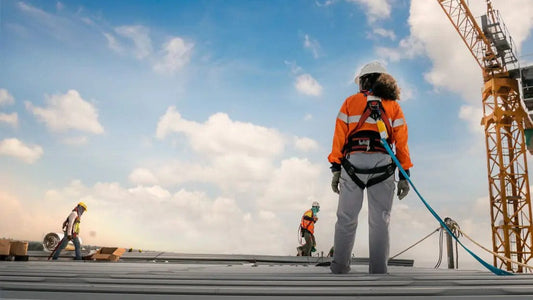The Role AI Will Play in the Construction Industry

The construction industry is on the brink of a technological revolution, with artificial intelligence (AI) emerging as a key driver of innovation. From improving efficiency to enhancing safety, AI is set to transform how projects are planned, executed, and managed. Here’s a closer look at the role AI will play in reshaping the construction landscape.
Enhancing Project Planning
AI-powered tools can analyze vast amounts of data to streamline the planning process. For example, machine learning algorithms can predict potential project risks by analyzing historical data and current site conditions. This allows contractors to proactively address issues before they become costly delays. Additionally, AI can optimize schedules by considering variables such as weather patterns, material availability, and labor resources, ensuring projects stay on track.
Improving Safety on Job Sites
Safety is a top priority in construction, and AI has the potential to significantly reduce workplace accidents. Smart cameras and sensors equipped with AI can monitor job sites in real time, identifying hazards such as unsafe equipment operation or workers not wearing proper protective gear. These systems can immediately alert supervisors, preventing accidents before they occur.
Drones powered by AI can also be used to survey job sites, providing a bird’s-eye view to detect potential risks and monitor progress without putting personnel in harm’s way.
Revolutionizing Design Processes
AI is transforming how architects and engineers approach design. Generative design, powered by AI, allows professionals to input design parameters such as material types, budget constraints, and spatial requirements. The system then generates multiple design options, optimizing for efficiency and aesthetics. This not only speeds up the design process but also leads to innovative and cost-effective solutions.
Enhancing Resource Management
AI can help construction companies better manage resources, from materials to labor. Predictive analytics can forecast material needs, reducing waste and ensuring timely deliveries. Similarly, AI can analyze workforce data to optimize task assignments, improving productivity and reducing downtime.
Facilitating Real-Time Collaboration
AI-driven platforms enable seamless communication and collaboration among project stakeholders. Tools like BIM (Building Information Modeling) integrated with AI allow teams to share updates in real time, detect clashes in designs, and ensure everyone is on the same page. This level of coordination reduces errors and enhances project efficiency.
Driving Sustainability
Sustainability is becoming increasingly important in construction, and AI is playing a pivotal role in achieving green building goals. AI can analyze energy consumption patterns, recommend eco-friendly materials, and optimize building designs for energy efficiency. Additionally, AI-powered systems can monitor a building’s performance post-construction, ensuring it operates sustainably over time.
Overcoming Challenges
While the benefits of AI in construction are clear, challenges remain. High implementation costs, the need for skilled personnel to operate AI systems, and data security concerns are some of the hurdles the industry must address. However, as AI technology becomes more accessible and training programs expand, these barriers are likely to diminish.
The Future of AI in Construction
The adoption of AI in construction is still in its early stages, but its potential is immense. As technology continues to evolve, AI will become an integral part of the industry, driving innovation and setting new standards for efficiency and safety. Companies that embrace AI early will not only gain a competitive edge but also help shape the future of construction.
In conclusion, AI is not just a tool but a transformative force in the construction industry. By leveraging its capabilities, the sector can achieve unprecedented levels of efficiency, safety, and sustainability. The construction sites of tomorrow will be smarter, safer, and more efficient, thanks to the power of AI.




